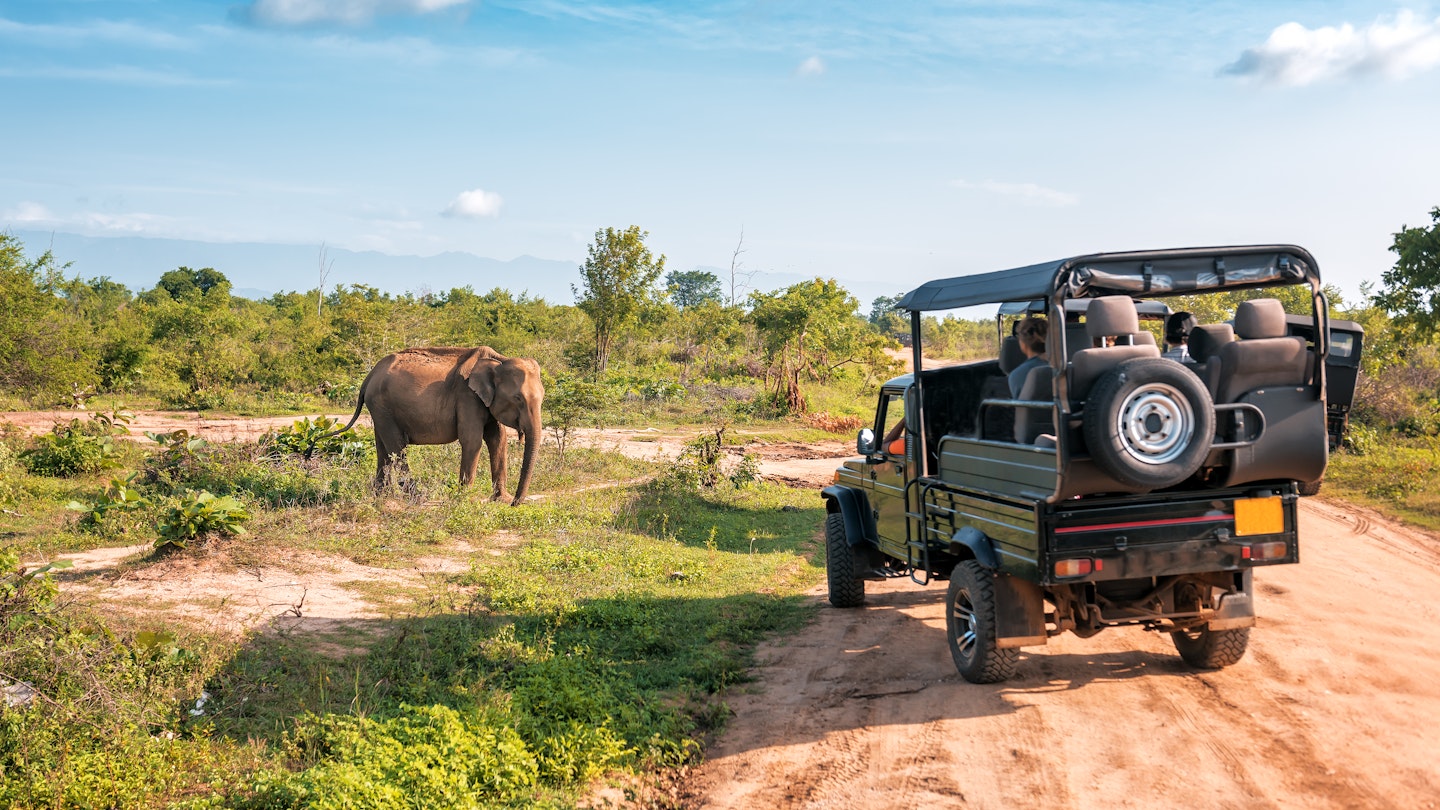Responsible Wildlife Watching in Sri Lanka
Even by the pearl-studded standards of the Indian Ocean, Sri Lanka is a jewel. Visitors flock here for the rich and diverse culture, stunning beaches, and astoundingly varied wildlife. Elephants, monkeys, leopards, and sloth bears are the stars of the show on land, while whales and dolphins vie for attention off-shore. However, Sri Lanka’s record on animal welfare is not so rosy, especially regarding elephants, which are often subjected to cruelty or kept in poor conditions.
After years of campaigning from animal rights groups, a new Animal Welfare Bill will take effect soon, with a particular focus on protecting Sri Lanka’s emblematic elephants. The prevailing question remains: how can you enjoy this incredible wildlife ethically? Here are a few suggestions for responsible animal watching in Sri Lanka.

See Wildlife at Uda Walawe National Park
Often cited as Sri Lanka’s best national park, Uda Walawe rarely disappoints. Thanks to the landscape of low forest and grassland, animals are easy to spot, especially elephants. Ensure your safari driver respects the wildlife by keeping a safe distance, while avoiding any roadside stalls that sell fruit for feeding the elephants, which may encourage begging behavior.
Spot Animals at Bundala National Park
If you want to avoid the crowds, visit Bundala – a compact area at the edge of lagoons and dunes, where you’ll encounter elephants, langur monkeys, and crocodiles. Between October and January, various marine turtles lay their eggs on the coast. This park offers superb birdwatching opportunities with fewer visitors.

Admire the ‘Gathering’ at Minneriya and Kaudulla National Parks
In these national parks, a giant corridor allows elephants to traverse and congregate, particularly from July to September, when water recedes. However, be aware of the visitor numbers, which can sometimes surpass elephants, leading to disturbance. Bring a long lens for photography to minimize disruption to the elephants.
Responsible Whale-Watching Tours at Mirissa
The coastal town of Mirissa is renowned for whale watching, featuring blue whales and various dolphin species. When engaging with operators, select those who follow responsible guidelines and approach pods slowly while maintaining a safe distance from the animals.

Avoid Elephant Orphanages
While elephant orphanages attract tourists, many often breed elephants for public display, which raises ethical concerns. Be wary of places like the Pinnawala Elephant Orphanage, as the practices employed can be detrimental to the animals’ welfare.
Alternative Whale-Watching at Uppuveli
For a different experience, Uppuveli, near Trincomalee, is emerging as a destination for dolphin and whale watching. Ensure local boat operators adhere to responsible practices to avoid disrupting the animals during your viewing experience.
Questions and Considerations for Responsible Animal Watching in Sri Lanka
As a visitor, you can influence responsible animal watching in various ways:
Go Wild
The best way to see any wild animal is in its natural habitat, which usually means in the country’s national parks or offshore waters.
Avoid Elephant Orphanages
Elephant sanctuaries or orphanages should be avoided since most fall short of true ethical treatment.
Do Not Ride Elephants
Skip any places that offer elephant rides, as this can lead to significant harm for the animals.
Safari Solo
When visiting national parks, consider hiring your own open-top jeep so you can instruct the driver to maintain a safe distance from wildlife.
Watch Whales Responsibly
Before booking, communicate to boat operators your desire to minimize impact on the animals. Choose reputable operators that adhere to international guidelines.
Speak Out
Share your concerns with local operators regarding animal treatment, helping to elevate awareness of responsible wildlife practices.
Put Your Money Where Your Mouth Is
By boycotting unethical operators and supporting those who practice responsible tourism, you can encourage positive changes for Sri Lanka’s wildlife.
This article highlights ethical wildlife interactions, urging mindful practices to protect amazing creatures for generations to come.





